The sound of 'bah' is bringing a pleasant background noise to residents of The Sequoias retirement community in Portola Valley.
Some 99 goats and sheep have been grazing on flammable brush on the hills, creek and land adjacent to the Sequoia Trail over the last few weeks. Toto, a Dobermann, stands guard against mountain lions who might prey on the animals.
"As the wildfire threats continually increase, we step up our fuel mitigation efforts to minimize the fire danger," said Glen Mullins, The Sequoias' director of environmental services, in an email. "In the past weed-whacking equipment was used to knock down the winter grasses but this leaves the weeds (fuel) behind."
The goats, on the other hand, consume most of the grass, which leave behind that could burn, he said. The Sequoias has used goats at its Tamalpais retirement community in the past with success.
The wildfire last month in the nearby Emerald Hills, which caused residents to evacuate their homes, was a sobering reminder of the dangers of fire on the Peninsula.
It's high season — which begins in April for MO Landscape Contractor Inc., the Central Valley-based company managing the project. Owner Miguel Orozco told The Almanac during a visit to the site on a particularly sweltering day last week that his company is there to remove all flammable brush including ivy and poison oak — that could create a fire. He performs what he describes as a "deep clean."
How does one get into this line of work? Orozco, a longtime Sunnyvale resident, moved to the Central Valley two years ago in search of a quieter life. He bought 10 acres of land and eventually picked up goats and sheep to keep his weeds under control. He already ran a landscaping business, but decided to begin the natural vegetation management work following a suggestion from someone who bought one of his baby goats.
After seeing the goats' work at The Sequoias, the town of Portola Valley asked the Orozco to stick around a while longer and do work on town-owned land along the Sequoia Trail.
His work has brought him back to the Bay Area for periods of time and he just completed a project in Hillsborough.
A challenging job
Orozco noted that goat grazing is difficult work.
"It's really hard to be on the hills for months away from family," he said. "I can not do it myself. ... You can barely see your kids during the high seasons." His team stays onsite with the goats 24/7.
Orozco has lost two goats and a lamb to mountain lions in Portola Valley. He said he had to move the babies away from the site because they tend to attract the predators. Mothers that are close to giving birth will be removed.
There are other threats to the animals as well. Bees can create underground nests and if they sting goats, they can kill them, Orozco said.
By Halloween, when the rain starts, Orozco shuts down his goat business for the season. It gets muddy and goats are prone to pneumonia in wet conditions, he said.
The business of goat grazing
Orozco's business isn't the only one in the natural landscaping game.
In 2018, Forbes reported that having herds of goats clean up large-scale vegetation was a "tiny, yet steadily growing, eco-conscious business." The publication noted that there were several hundred of these businesses operating at the time.
The decade-old City Grazing, a nonprofit based out of San Francisco, provides sustainable, "goat-powered" land management, and fire risk reduction through outreach and education.
Chasin Goat Grazing out of Sonoma County offers similar services.
For information on MO Landscaping, call 408-205-8417 or email MigueOB89@gmail.com.
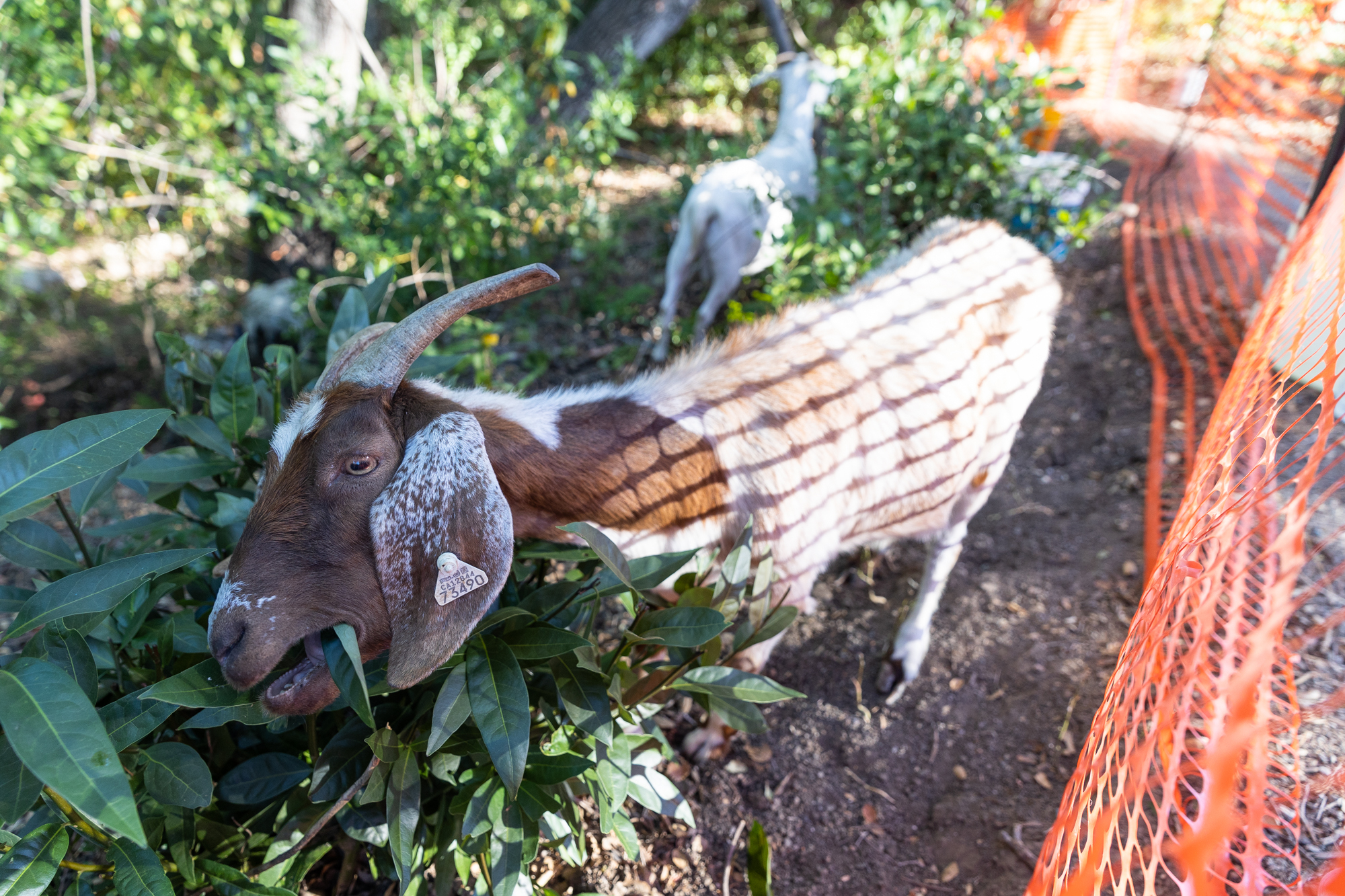
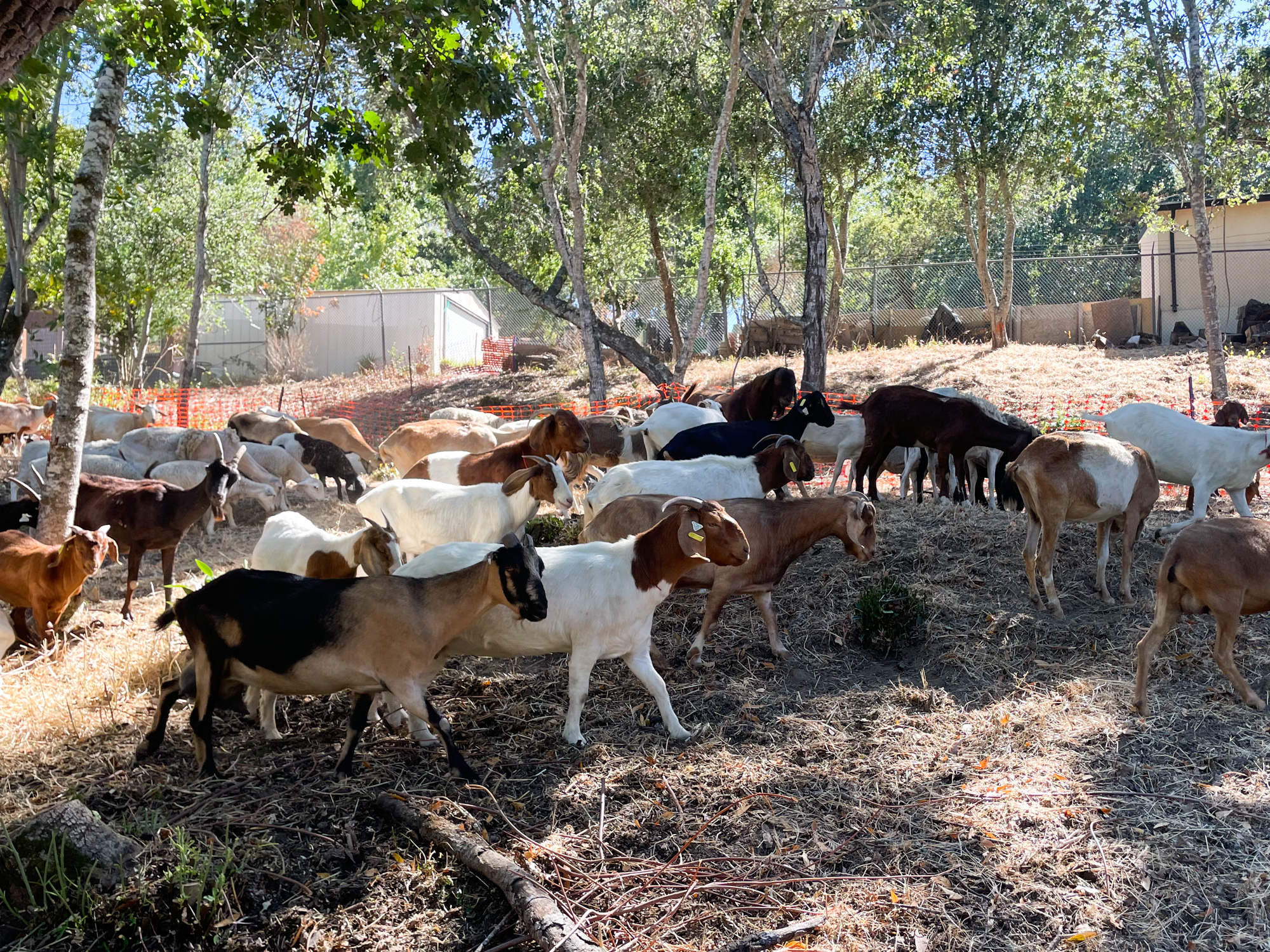

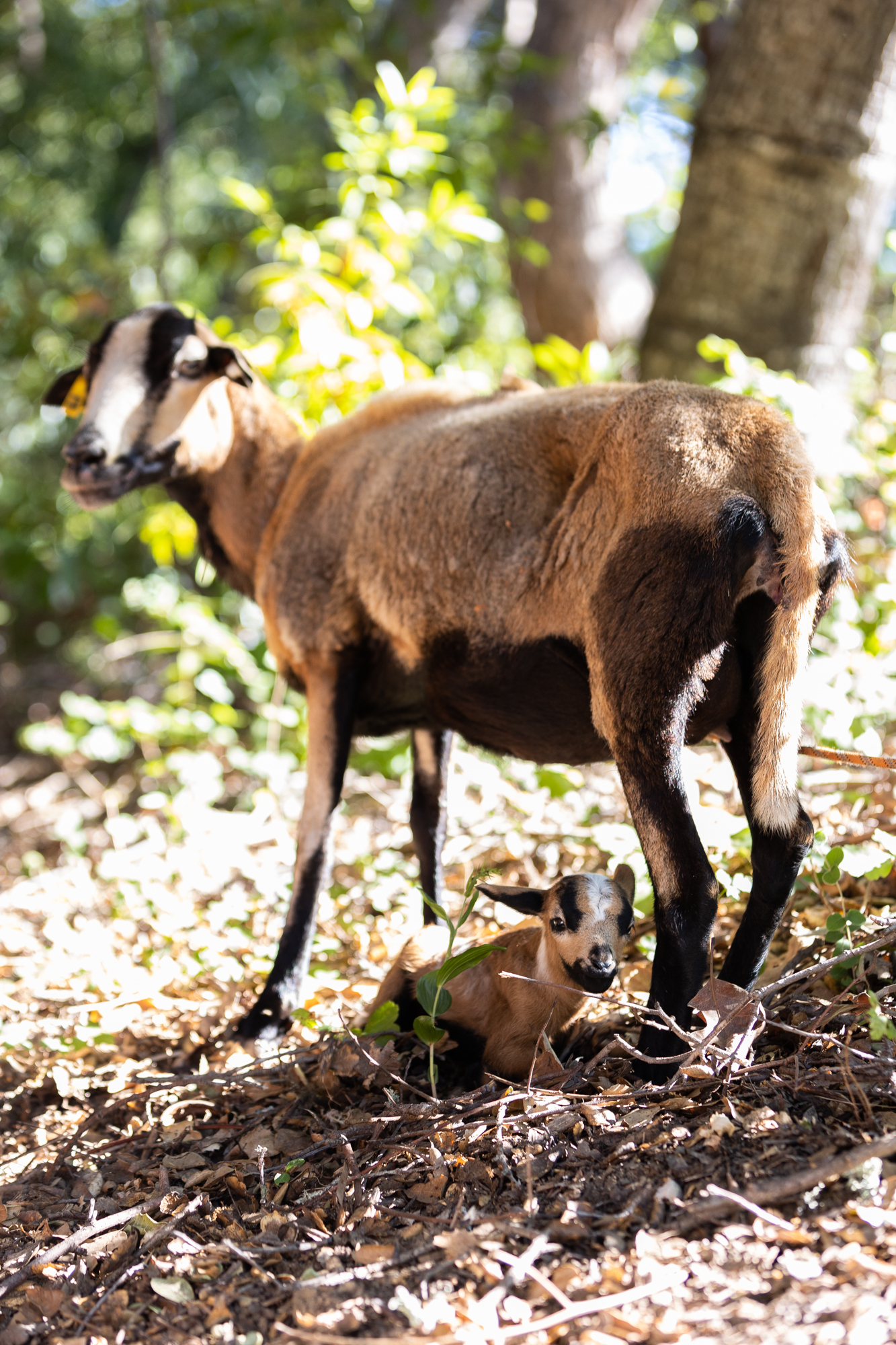
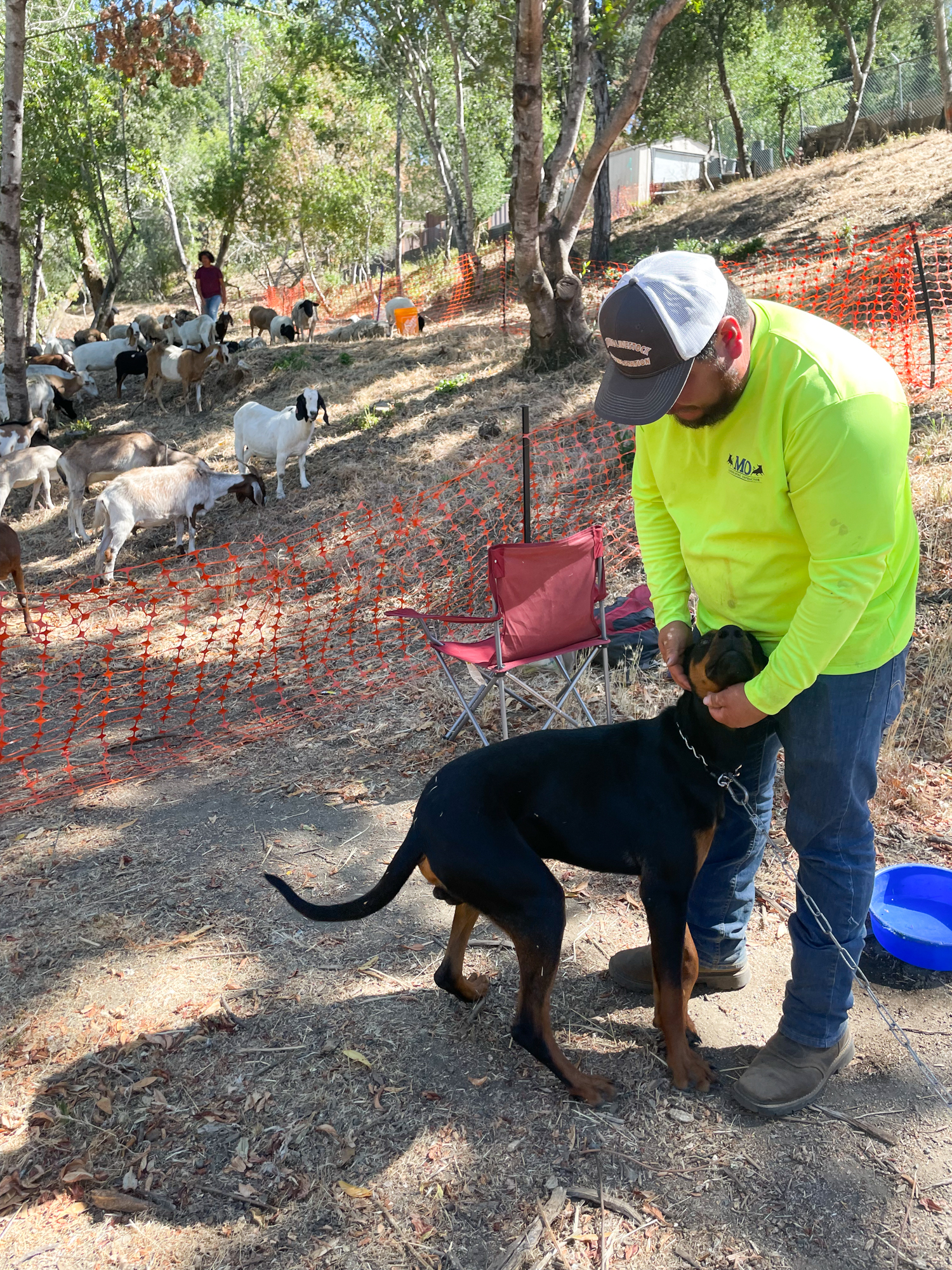
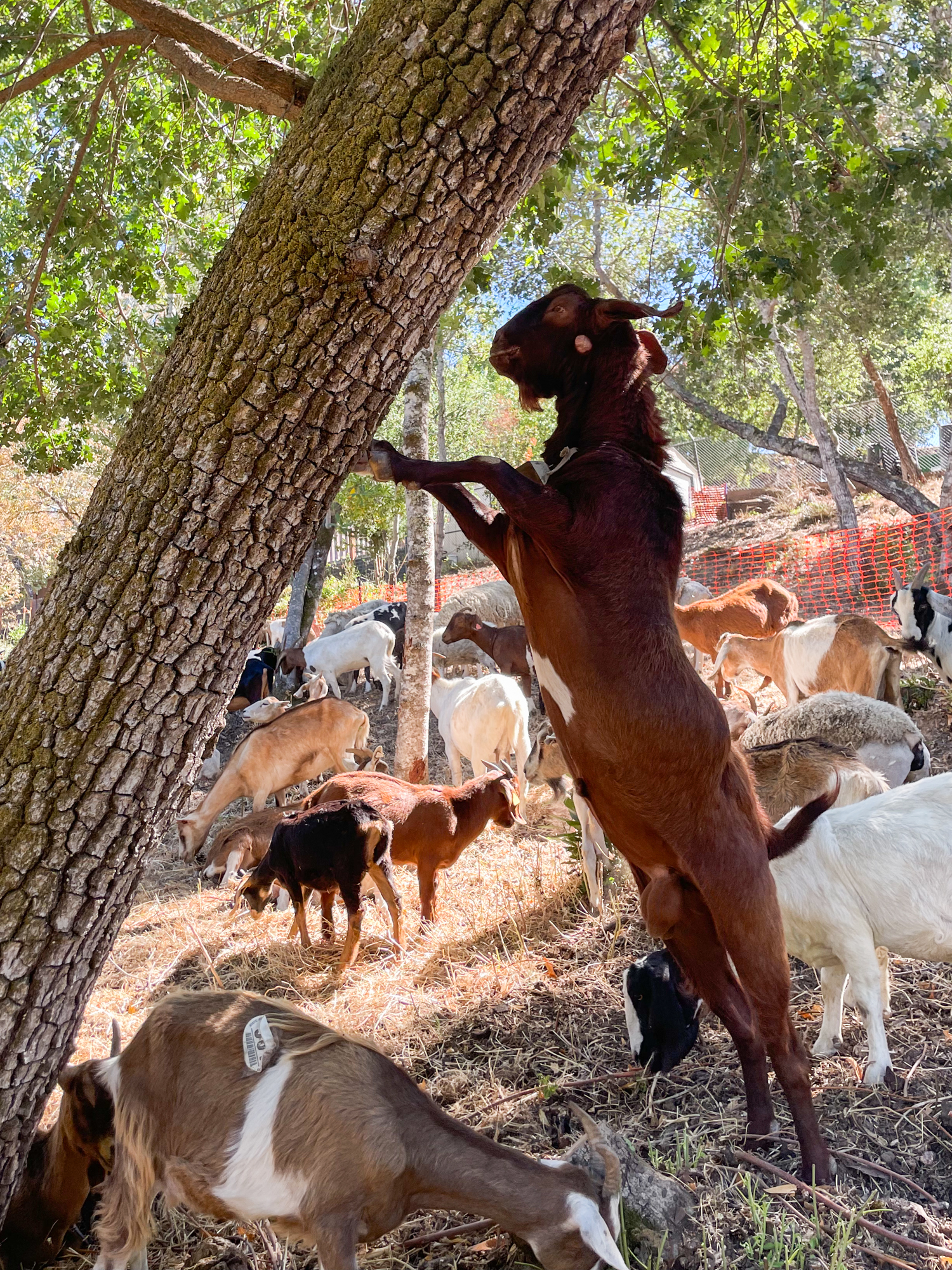

Comments